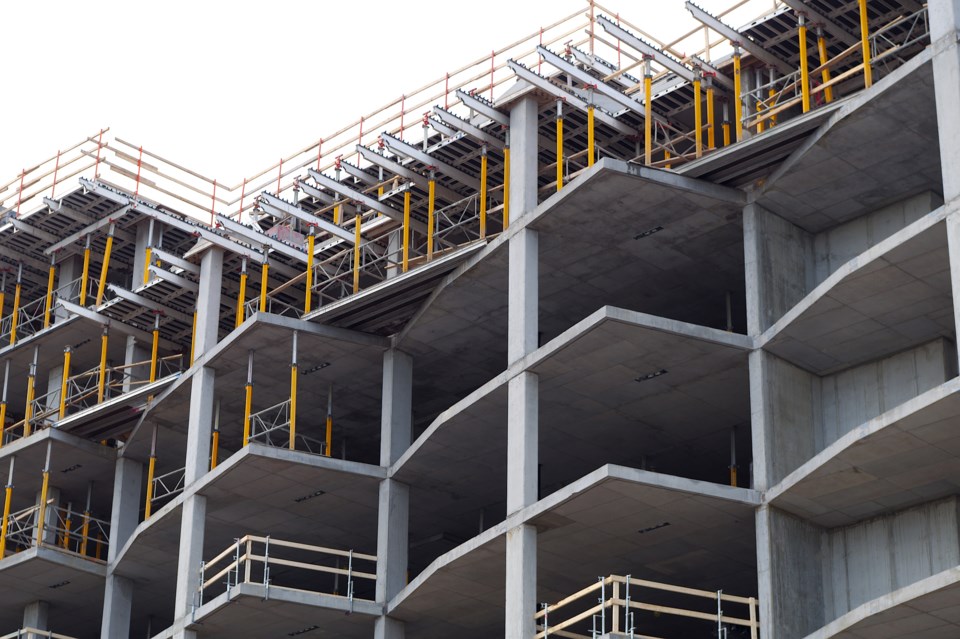Coquitlam ended 2020 with a “historical record” in development and construction despite the financial hardships facing the world during the pandemic.
According to numbers released Monday by the city, the total value of construction topped $690 million — up from $614 million the year before.
City managers attributed the building boom to the essential service designation by the provincial government during COVID-19 as well as the strong housing market, low interest rates and the desirability to live and work in Coquitlam.
Mayor Richard Stewart also said the arrival of the Evergreen Extension four years ago and the neighbourhood plan revisions have had a significant impact; those changes to land-use policies have informed the real estate market and the development industry where and when Coquitlam wants growth to happen, he said.
In her report, Nikki Caulfield, Coquitlam’s general manager of corporate services, said although development slowed last spring — after the health emergency was declared — hammers and saws sounded throughout the summer and fall.
By Dec. 31, Coquitlam saw a 38% uptick over 2019 in the number of development bids received, for a total of 135 new projects representing 35,389 homes in the approval phase or under construction — “a new historical record for the city,” she wrote.
Of those new homes, 19% — or 6,592 — were for rental units as developers made use of incentives under the city’s housing affordability strategy.
Coun. Brent Asmundson said Coquitlam is the first in the region, per capita, for building new rental homes, and he asked city staff to promote the numbers and highlight the city’s work to the public. “We stand out above the rest.”
ICI building
As for industrial, commercial and institutional (ICI) projects, they had a $63.3-million construction value last year: $1.5 million for industrial, $11.8 million for commercial and $49.8 million for institutional, Caulfield’s report shows.
Jim McIntyre, Coquitlam’s general manager of planning and development, said he’d like to see more ICI construction as the result means more jobs and an expanded tax base.
Meanwhile, Caulfield said the pandemic delayed some business plan items last year, with pauses placed on the RCMP strategic plan and safe place initiative, the Brunette interchange planning and the city lands portfolio strategy.
And a few projects were stopped altogether such the Pipeline Road improvements, economic development strategies, Glen Park Phase 3, the Burke Mountain joint school/parking site, the Coquitlam Diking District, the public works service level review, the community engagement strategy and collective bargaining.
Still, the city did wrap up some high-profile projects during the pandemic, which saw many municipal employees work from home, or get laid off; however, among the items that got checked off was the City Centre Area Plan revision — a blueprint that will see 24,000 more residents added to the neighbourhood.
“It’s phenomenal we’re still on track in most areas,” Coun. Chris Wilson said in reviewing the city’s final trimester report.
Added Coun. Steve Kim, “It’s incredible to see in such a difficult time the level of excellence being delivered.”




